Okro Soup, Bubble Tea, and Relleno: International Students Share Their New Year's Traditions
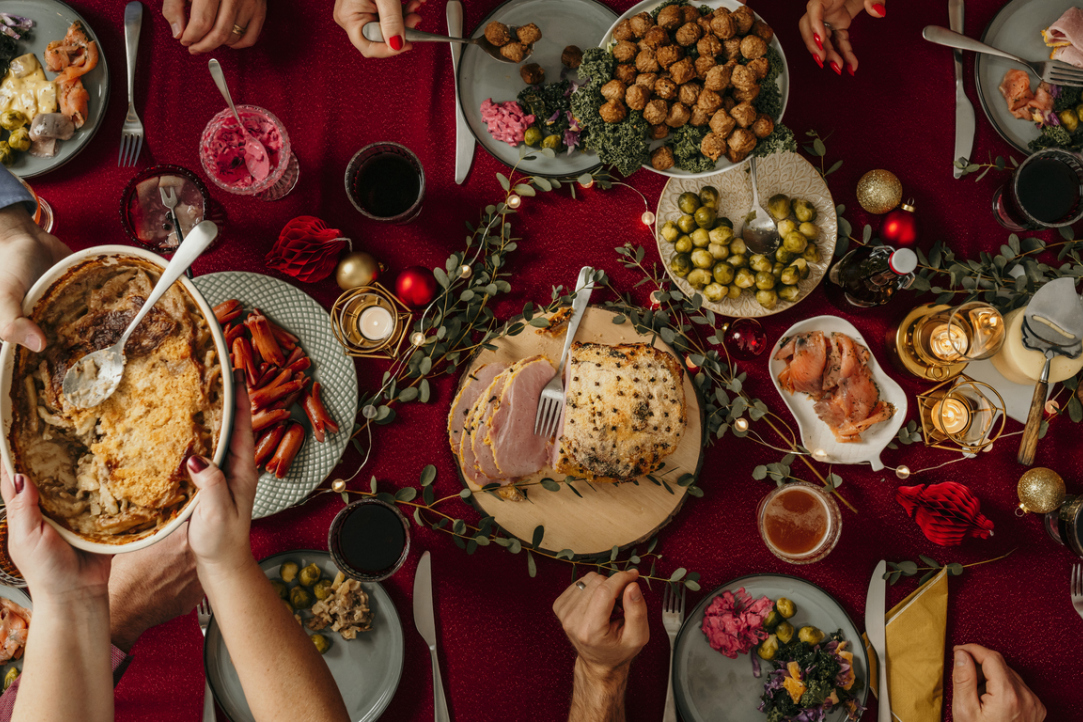
HSE University is home to international students from all over the world, many of whom will be celebrating the New Year in Russia for the first time. They shared their plans for the festive season with the HSE News Service and spoke about holiday traditions and dishes in their home countries of China, Ecuador, Pakistan, Ghana, Indonesia, Nigeria, Guatemala, and India.

Wenrui Zhang, China
Master’s student of Economics and Economic Policy (Applied Economics Track)
Christmas and New Year are not traditional festivals in China, but Lunar New Year is. However, with the integration of world cultures, these two festivals have become popular in recent years, especially among young people.
Christmas is not a day of rest in China; people need to work and study normally. But we can still see many Christmas trees and Santa Claus in shopping malls or on the streets. Young people (especially millennials) like to give each other beautifully packaged apples to express their blessings. This is because the pronunciation of 'apple’ in Mandarin a homonym of ‘the fruit of peace’.
For the New Year (called Yuan Dan in China), the country now has three days off, so it is more popular.
On this day, people like to set off fireworks and Kongming lanterns on which are written wishes for themselves or blessings for family and friends

Chinese New Year (also known as Lunar New Year) is a traditional festival for Chinese people, and people will hold grand celebrations and traditional activities. The vast majority of Chinese people will choose to go back to their hometown.
The largest population flow in China happens during the Chinese New Year. More than 100 million people travel thousands of miles to return to their hometowns to spend a happy holiday with their families
Chinese New Year in 2023 is on January 22nd; and you will see big Chinese celebrations in the media then. I come from a very typical traditional Chinese family, so my family usually only celebrates Chinese New Year, and the elders will stuff some money in red envelopes and give them to the children. For Chinese children, that may be the happiest moment of the New Year. Often, elders also receive red envelopes from adults who are already working.
Red envelopes are not just a gift of money, but a sincere expression of blessings in Chinese culture
Having said that, as millennials in China, we will give each other beautifully packaged apples at Christmas.
Giving bubble tea to loved ones or very good friends on New Year's Day is also popular in recent years
Because bubble tea is usually sweet, it expresses the hope that your friends or loved ones will be sweet every day in the new year.

Chinese food is very varied, so the dishes eaten at festivals are usually not universal. As far as I am concerned, I want to eat hot pot in the New Year. Although I am in Russia this year, I will also choose to eat hot pot in the New Year, and I can't wait to eat it. Tang Yuan, dumplings, and fish are also usually popular dishes in China; these dishes express happiness and peace.
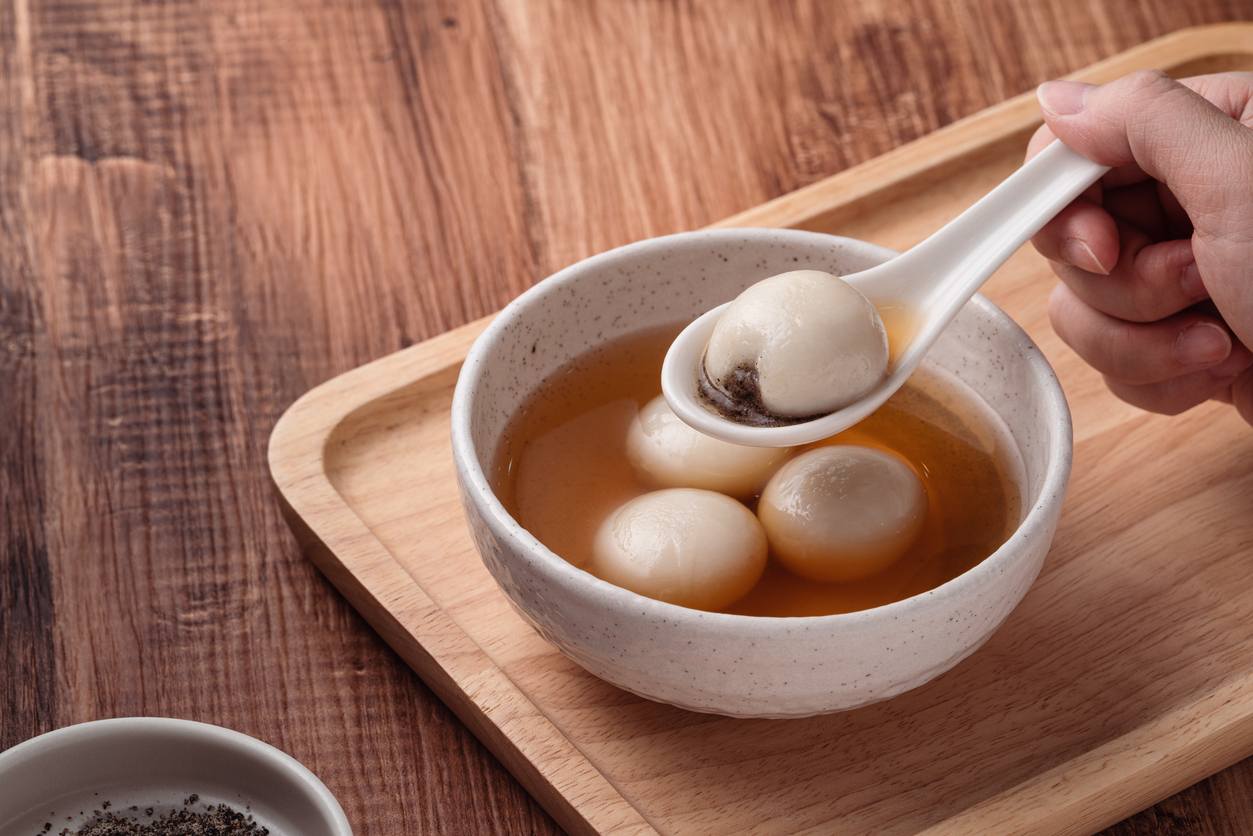
For the winter holidays this year, I will choose to travel to St Petersburg by train. I haven't been to St Petersburg yet, but I know it's a city with a lot of history and it's very beautiful. My friends recommended I visit the Winter Palace and Mikhailovsky Palace, and no doubt I will go then. But I would rather just stroll in the streets of St Petersburg, choose a Russian restaurant at random, and experience the daily life of the people living there.

Antonella Alvarado, Ecuador
Bachelor’s student of Economics
At Christmas back at home, we spend time together with my family. We have dinner and then we usually dance to salsa music.
During Christmas night, we exchange gifts we bought for each other while mentioning some characteristics of the person we are giving the present to
The gifts can be of any type, from books to headphones.
For this celebration, we usually prepare ‘relleno’. It is made of nuts, cookies, raisins and wine. We eat it with turkey, rice and with a colourful Christmas salad
During this winter holidays, I will stay in St Petersburg and spend some time with other international friends.

Obed Amponsah, Ghana
Master’s student of Economics and Economic Policy
Christmas and New Year are extremely important holidays in Ghana. I usually celebrate with my family and friends. Christmas is historically observed in Ghana from December 24th to January 1st. This is primarily a unique opportunity to gather with family and friends to celebrate and thank God for his protection throughout the year. There are several organised parties, feasts, and celebrations throughout this time. During this period, I spend much of my time traveling to new areas and attending events and activities.
We usually hold a get-together party around these times, where my friends and family members get together to share our yearly experiences, speak about new things, exchange gifts, and simply be thankful for what we have
Food items and other unique gifts are included in the gifts.
Fufu with groundnut soup or any other sort of soup is the most popular traditional dish among all Ghanaian dishes made for this particular occasion
Fufu is made from cooked and crushed cassava and is served with soup, which is my favourite food. The next dish, which is also widely prepared, is fried rice or jollof rice with meat. Not to forget banku with okro soup or okro stew, a typical southern Ghanaian cuisine. This meal is sometimes made with grilled fish and pepper sauce.
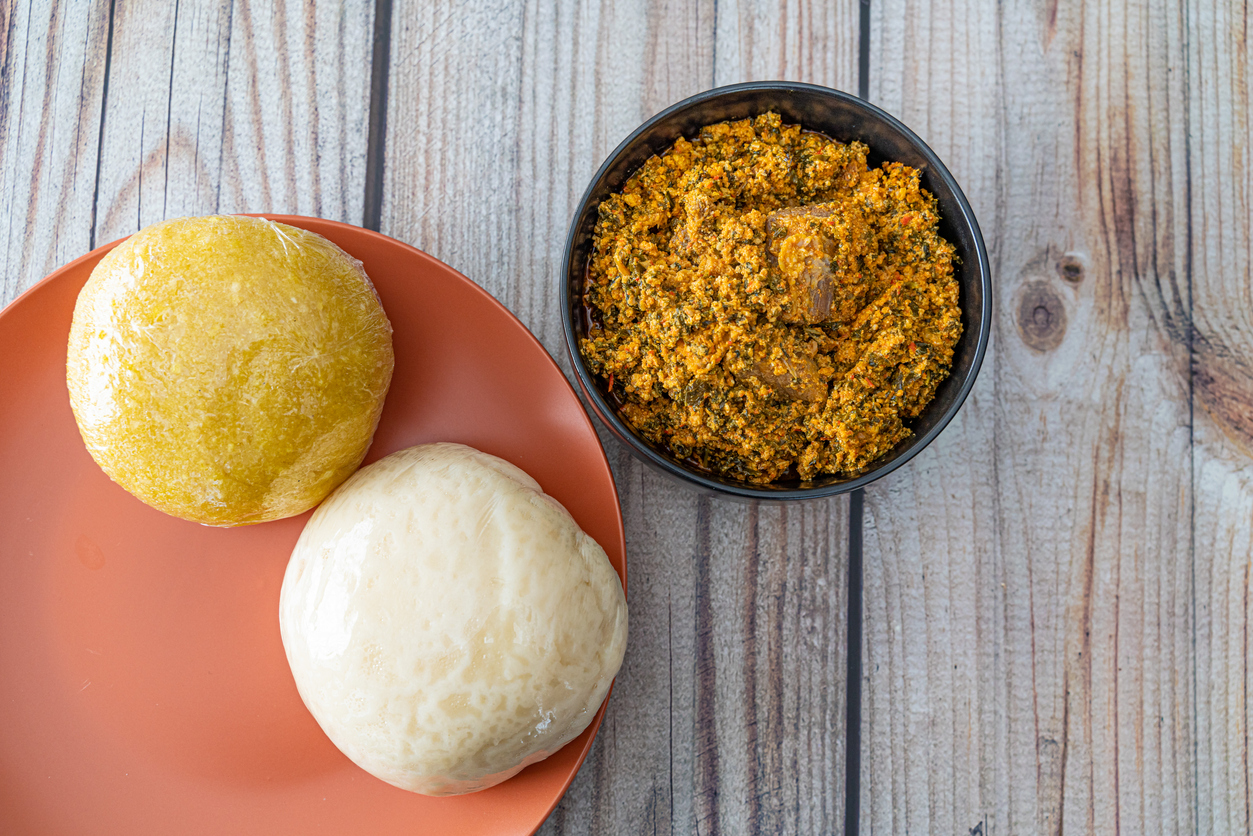
I intend to spend this winter holiday in Moscow. But because I don't have many friends here and it's my first time in Russia, I doubt my holiday will be memorable, but I hope to have an enjoyable and memorable Christmas in the future in Moscow.

Shah Zaman, Pakistan
Master’s student of Strategic Corporate Finance
In Pakistan, New Year's Day is enthusiastically observed by a wide range of ethnic, cultural, and religious communities. Many Pakistanis celebrate the New Year with celebrations, festivities, and prayers, following the global custom of celebrating New Year's Day on January 1 in the Gregorian calendar
The day starts with special prayers. People go to their respective places of worship and pray for their loved ones and mankind. After prayers, men and women start cooking special dishes, like chicken, biryani, milkshakes, and so on for their guests.
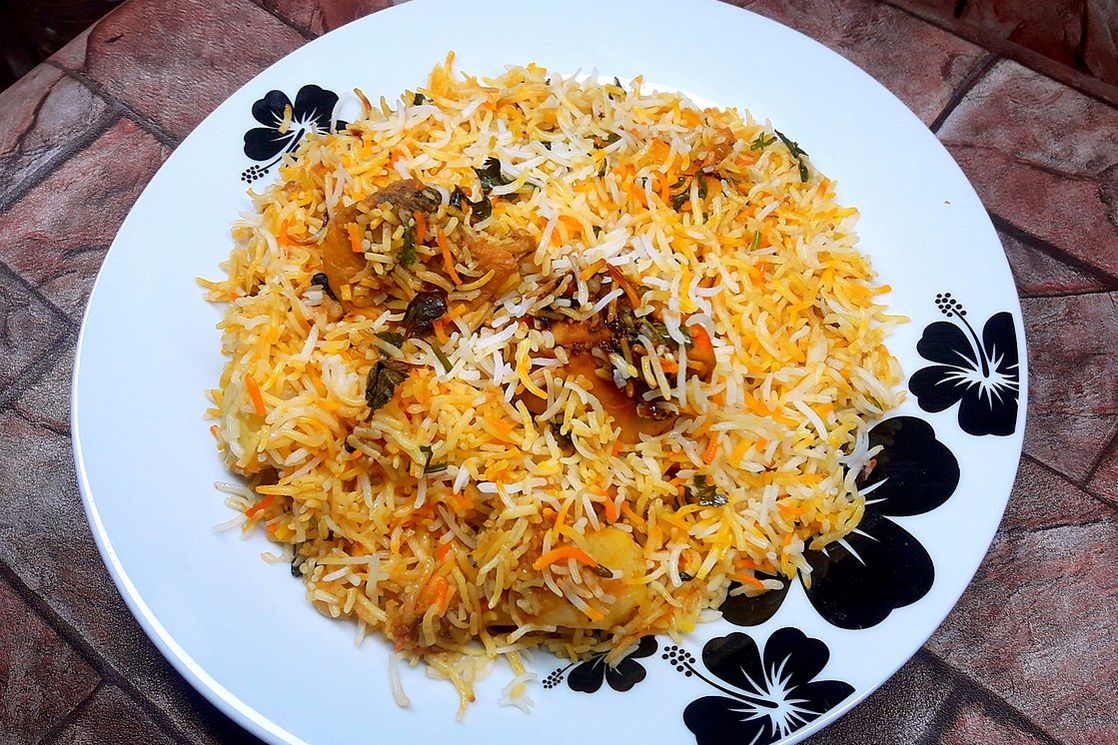
After meeting up with guests, families start planning to spend New Year night outside and have fun. People go to public parks, entertainment places for their children, and have dinner with family. In addition, the government sets up events for the public like folk music, which people enjoy a lot. The New Year celebration is an entertaining and relaxing day for the whole nation.
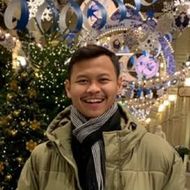
Faiz Arsyad, Indonesia
Master’s student of Agrarian Economics
For me, New Year is a holiday that I really like, because I get to celebrate it with the people I love. Last year while still in Indonesia, I celebrated the New Year with my family at home. We have a tradition of eating together, setting off fireworks, blowing trumpets, going to music concerts and launching lanterns into the sky.
One of the most spectacular traditions is launching a lantern into the sky. Usually, Indonesian people do it in certain places such as Borobudur Temple
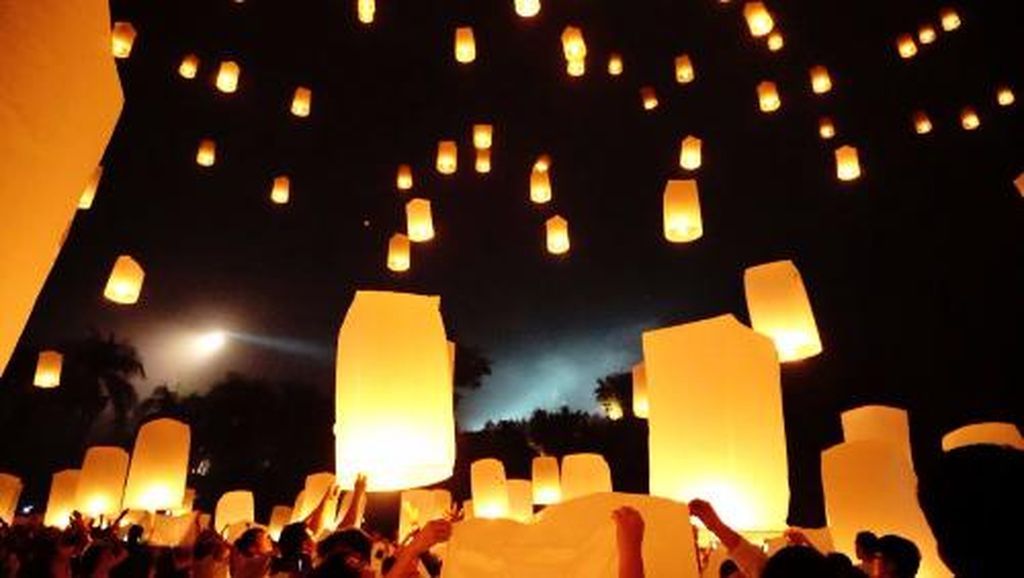
Launching a lantern into the sky means letting go of the bad memories of the past year and getting ready for the new year. Apart from that, we usually exchange gifts such as clothes and chocolates and give some money to children in need.
At New Year, the dishes that are always served are satay, Taliwang chicken, rendang and grilled corn. Satay is made with chicken, beef, mutton, and others. Conceptually, satay is like the Russian ‘shashlik’.
Taliwang chicken and rendang are special foods that are very popular in Indonesia and come from the Nusa Tenggara and Sumatra regions. This food is made with chicken and beef plus special Indonesian spices. The taste is very good and spicy. Yummy!
Meanwhile, roasted corn is a food that is always served at New Years in almost all countries. We've all definitely tried it.
This year, I will celebrate the New Year for the first time in Russia. I have two plans for the New Year: to go to Murmansk or stay in Moscow. In my opinion, for foreigners, Murmansk is one of the cities that you definitely want to visit. It's not perfect if you go to Russia but not to Murmansk, because Murmansk has beautiful nature and the beautiful aurora, which can be seen almost all night. I think Murmansk will also be a comforting place after finishing tough assignments and exams at HSE University. Meanwhile, my second plan is to stay in Moscow. I will go with friends to Gorky Park. We plan to spend the night ice skating and watching the New Year celebrations and fireworks there. After that, we plan to rent an apartment together and eat meat that we grill ourselves. I can't wait to enjoy my first New Year in Russia—it will be so much fun!

Oluwafunto Abimbola, Nigeria
Master’s student of Political Analysis and Public Policy
In Nigeria, and sub-Saharan Africa generally, we don't have winter, but during this period, we celebrate Christmas, New Year and other cultural activities like Iwude. Iwude is a gathering of people of the Ijesa sub-ethnicity. The cultural displays at the gathering include the royal regalia of Owa Obokun of Ijesaland (the ruling family of Ijesha): the royal crowns, the royal umbrella, the royal walking stick, etc.
The Iwude festival features cultural dances by the people and the royal family
We celebrate Christmas on the 25th of December and New Year on the 1st of January. For Christmas, my family travels down to our hometown (Ilesa, a small town in Osun state in southwest Nigeria). This is the only time we all get to be in the same space. We have a tradition of eating a family breakfast together and praying. Later in the day, we have a music band come to play and we host several other family friends. Nigerians are well known for throwing parties.
We eat pounded yam and different soups like melon seed soup, vegetables and okro with goat meat and chicken. We also have yam flour and jollof rice too. Pounded yam and yam flour are made from yam (a tuber/root). Pounded yam (as the name implies) is boiled and pounded, while yam flour is dried yam ground into flour form. Jollof rice is rice prepared in sauce.
I will definitely be in Moscow for the New Year. There was a plan to travel to Europe, but I couldn't.
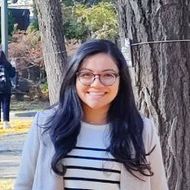
Monica Lopez, Guatemala
Master’s student of International Management
We celebrate Christmas on December 24/25 and New Year on 31/1. At home, we have a family dinner both days, but on New Year’s Eve we also celebrate with friends. On the 1st of January, we usually have lunch with all the family and my grandma is the one who does the cooking.
We have a tradition to eat 12 grapes and think of a personal purpose for each month
On Christmas Eve, we exchange gifts and play some games.
We have the tradition to eat a dish call ‘tamal’ that is made of corn maize, tomato sauce and meat. And for the family lunch, we eat pork with salad.
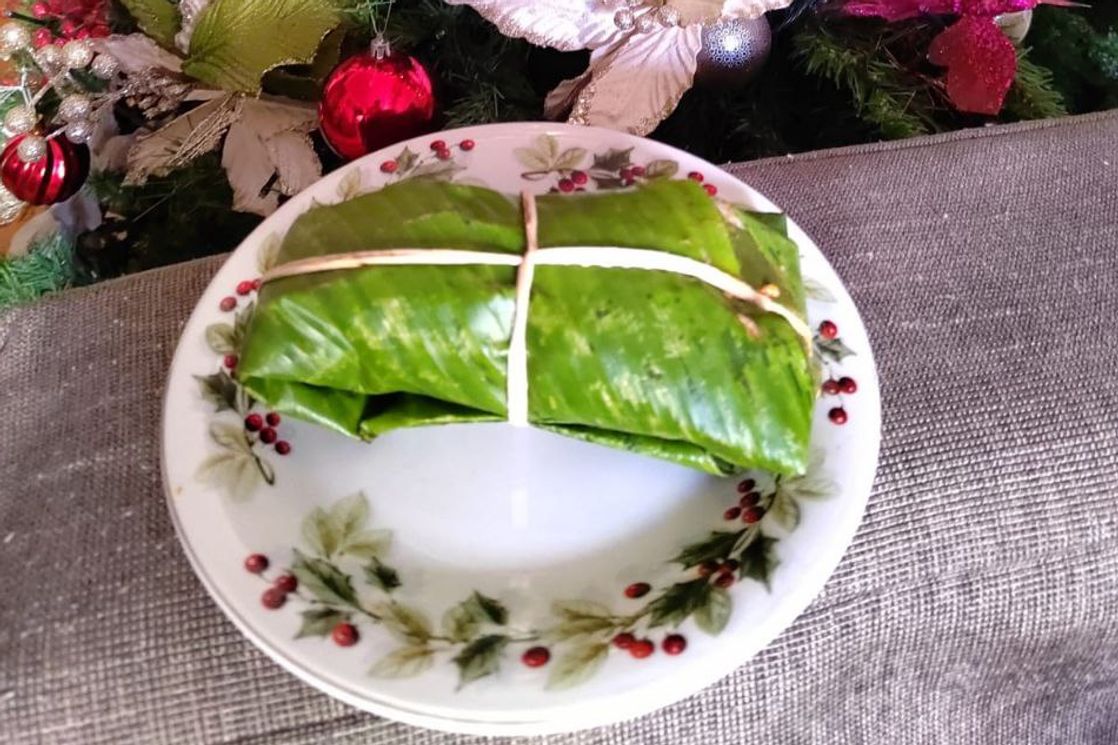
This is my second year here in Moscow, and I usually spend the holidays with my friends. We enjoy the Christmas activities and do some travelling around Russia. Last year, we went to Murmansk, and this year we plan to go to Sergiyev Posad.

Hamdan Siddiqui, India
Master’s student of International Management
I’m from Mumbai, the financial and cultural capital of India and the home of Bollywood. Back home, the winter holiday season is usually the time we spend together with friends. It can be a getaway celebration at a resort in nearby hill-stations if, miraculously, all friends agree (a rare instance); otherwise, we prefer lowkey activities like meeting up at someone’s home or having a staycation in the city watching holiday movies or catching up after a while.
In India, we have many ‘New Years’ (depending on the lunar calendar, religion, etc), so this one is usually celebrated with friends.
We like to watch nostalgic holiday movies from our childhood and drink hot chocolate
Also, we started our own ‘Wrapped’ series (similar to what Spotify does), but with funny/memorable/crazy memories or photos we found that were most iconic during the year and joke about everything we DIDN’T accomplish from our resolutions.
We don’t have any special New Year dishes, but we make desserts and brownies.
Last year, I had a blast spending my New Years in Moscow and can’t wait to celebrate it again here
It is completely different spending New Years in the freezing cold, watching the fireworks, holiday decorations and installations around town. Hitting different spots in town and finally going out to clubs and eating shawarma at five in the morning and coming back home exhausted in the freezing cold is memorable and iconic. Can’t wait!
See also:
HSE Expands Cooperation with Chinese Universities
An HSE delegation, led by Rector Nikita Anisimov, visited China for negotiations with the administration of the country’s top universities. The parties agreed to expand bilateral scientific and educational collaboration and signed several documents. In particular, a strategic partnership agreement was established with Peking University, one of the oldest and most prestigious educational institutions in China.
ICEF HSE Takes Part in Study Abroad Fair in China among World's Leading Universities
On March 18, 2025, the Southwestern University of Finance and Economics (SWUFE), Chengdu, China welcomed its counterparts to the SWUFE Study Abroad Fair. Russia was represented for the first time at the fair by a delegation from HSE University, including members of ICEF.
‘HSE’s Industry Ties Are Invaluable’
Pan Zhengwu has spent the last seven years at HSE University—first as a student of the Bachelor’s in Software Engineering and now in the Master’s in System and Software Engineering at the Faculty of Computer Science. In addition to his busy academic schedule, he works as a mobile software engineer at Yandex and is an avid urban photographer. In his interview with the HSE News Service, Zhengwu talks about the challenges he faced when he first moved to Russia, shares his thoughts on ‘collaborating’ with AI, and reveals one of his top spots for taking photos in Moscow.
‘Looking for Talents’: HSE University Holds Entry Competitions in Three Chinese Cities
In early March, representatives of HSE University-St Petersburg organised a series of entry competitions for applicants from China. The exams were held in three cities—Beijing, Nanjing and Chengdu—at the Russian Cultural Centre (RCC) in Beijing and leading Chinese universities.
‘Opportunities Always Exist; You Just Need to Find Them’
Kartik Joshi, from India, is pursuing a master's degree at HSE University, specialising in Data Science. In his interview, he talks about his life and studies in Moscow and invites HSE students and staff to participate in the Holi festival on March 21.
‘I See a Great Need for Organisations That Support Russian and Chinese Businesses’
Anastas Karagadaev, a graduate of the master’s programme ‘Science, Technology and Innovation Management and Policy’ at the Institute for Statistical Studies and Economics of Knowledge (ISSEK) at HSE University, achieved significant career success even during his student years. Back then, he actively participated in the Laboratory for Science and Technology Studies at ISSEK and founded his own start-up. Currently, he is working on developing projectswithin the Russia–China Centre for Innovation Cooperation in Nanjing.
Indonesian Parliamentary Delegation at HSE: New Prospects for Cooperation
On 24 February, 2025, the HSE campus on Pokrovka hosted a meeting with a delegation from the Committee for Inter-Parliamentary Cooperation of the House of Representatives of the Republic of Indonesia. HSE Vice Rector and Head of the BRICS Expert Council–Russia Victoria Panova took part in the event alongside representatives from the university’s academic departments and research centres. During the meeting, the parties discussed key areas for strengthening academic and expert cooperation, as well as joint initiatives in science and technology, including those within the BRICS framework.
‘My Advice to International Students: Be Open-Minded and Willing to Adapt!’
Adila Ulfia Maula Tontowi is a third-year student of the Bachelor’s in Foreign Languages and Intercultural Communication. After moving from her hometown in Indonesia to France for a year, she decided to broaden her horizons even further and study at HSE University in Moscow. In this interview, Maula talks about navigating intercultural interactions, how the International Prep Year helped her adapt to life in Russia, and what she’s learned about traditional Russian celebrations like Maslenitsa—which is taking place this week.
Indonesia Hosts HSE International Olympiad for First Time
HSE University and the Russian House in Indonesia have held the first offline INTO HSE olympiad in Jakarta. It is a new, free event in English for international school students.
‘Here at ICEF, I Study and Communicate with Intelligent People’
Yan Minghao, from China, is in his second year of master’s study at ICEF HSE and has a passion for mathematics and Russian culture. In this interview, he shares the experience of being an ICEF student, contributing to international research venues, and travelling around Russia.


